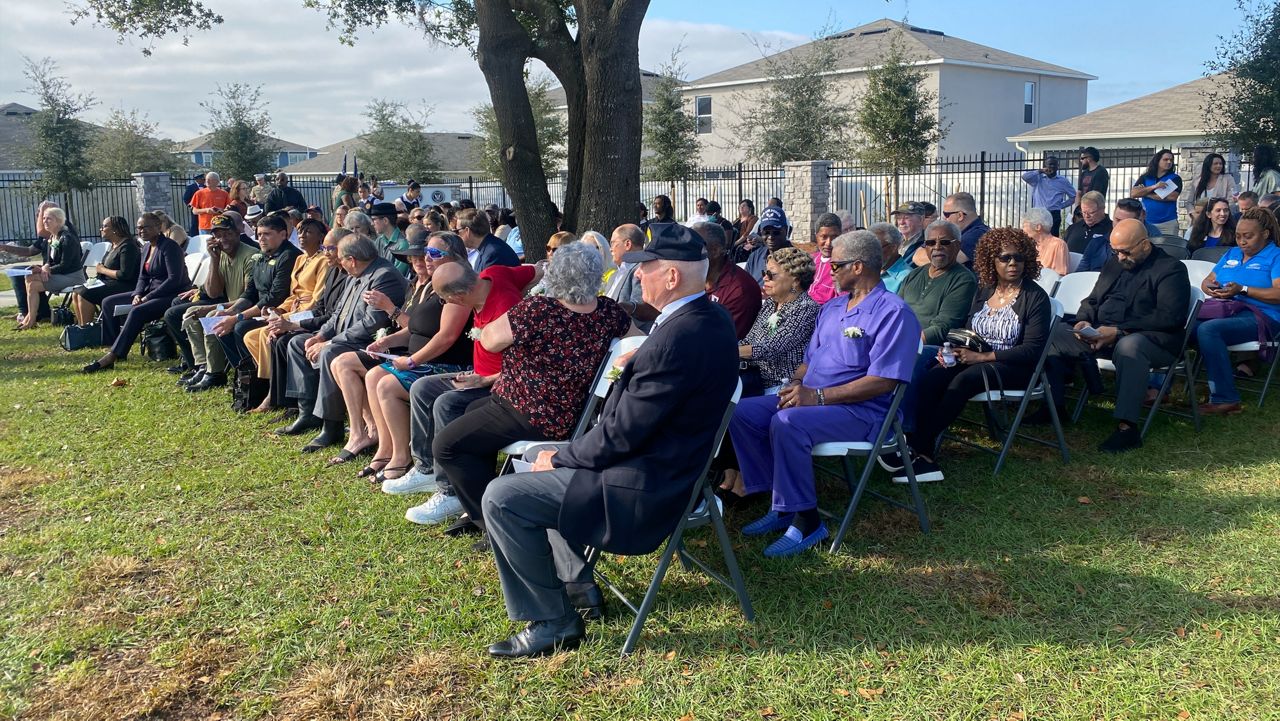- BlackVoter.Org
- Posts
- BlackVoter.Org
BlackVoter.Org

In a strikingly hypocritical move, former President Donald Trump recently extended refugee status to white South Africans while simultaneously cutting U.S.
aid to their country. Critics argue that this gesture belies his long history of demonizing Black and brown asylum seekers.
Trump’s claims of white Afrikaners facing persecution amid land reforms ignore the stark socio-economic realities in South Africa, where white individuals continue to hold 70-80% of arable land, a legacy of apartheid that the current government is attempting to redress. Meanwhile, in the U.
S., a documented history of land theft from Black Americans remains unresolved.
As Trump echoes narratives from Afrikaner lobbyists, experts point out that his sudden advocacy for white South Africans stands in stark contrast to his administration's track record of systemic racism and anti-refugee policies, leading many to question his motives as merely a tactic to divert attention from pressing global issues.

The U.S.
Navy is honoring the legacy of Doris Miller, a World War II hero, by naming a new aircraft carrier, CVN-81, after him—the first warship to be named for an African American. Miller, a Mess Attendant 2nd Class, made history during the Pearl Harbor attack on December 7, 1941, when he bravely manned an anti-aircraft gun despite having no training, all while attending to injured crew members on the U.
S.S.
West Virginia. His courage earned him the Navy Cross, the third-highest military honor.
Tragically, Miller was declared missing in action two years later during the Battle of Makin. Announced on Martin Luther King Day, the naming of the carrier not only celebrates Miller’s heroism but also serves as a poignant reminder of the contributions of African Americans in military history.
Rep. Bernice Johnson praises the recognition, highlighting Miller’s enduring impact on public life and service.

In a powerful exploration, the article highlights the often-overlooked history of African American cemeteries in the U.S.
, where countless individuals were buried amid neglect and erasure. Even after emancipation, these final resting places suffered from the impacts of segregation and racism, with many sites paved over for development.
As cities expand, historic Black cemeteries frequently face destruction, leaving their stories untold and their legacies unhonored. However, community leaders and descendants are stepping up, dedicating efforts to reclaim and preserve these sacred spaces.
The piece emphasizes the importance of acknowledging this injustice, as ongoing initiatives aim to give voice and respect to those who came before us. Join the conversation on how we can ensure these hallowed grounds are never forgotten again, honoring the past while paving the way for a more inclusive future.

In "Advancing the Dream," the focus highlights eight remarkable milestones in the Civil Rights movement that have transformed the landscape of justice and equality in America. Among these victories, the Voting Rights Act of 1965 stands out, a direct response to the systemic disenfranchisement of African Americans, particularly in the South.
Sparked by relentless civil rights demonstrations, this pivotal legislation, signed by President Lyndon B. Johnson, outlawed discriminatory practices at polling places and mandated federal oversight where necessary.
The NAACP heralds the act as a crucial safeguard, emphasizing the power of voting as a fundamental civil right for all citizens. This article offers a heartfelt reminder of the struggles fought and the progress made towards achieving true equality, celebrating the enduring spirit of those who dared to dream of a better future.

Pine Bluff High School senior Takiyah Smith has been honored as a regional ambassador for the 400 Years of African American History Commission, making history as the first representative from Arkansas and her school. In this exciting role, she will join an inaugural class of ambassadors, engaging in a dynamic training session in Washington, D.
C., where she'll meet members of Congress and collaborate with peers nationwide to tackle community and educational issues.
Smith plans to pursue a nursing degree at Southern University and A&M College with the goal of becoming a nurse practitioner. "We believe that you embody all the qualities we were looking for," praised Alyrique Franklin from the commission, highlighting the significance of her selection.
With this role, Smith is not only stepping into leadership but also paving the way for meaningful change in her community.

In a captivating blend of politics and social media, Elon Musk is transforming the communication landscape as Donald Trump embarks on his second presidential term. Now dubbed the "White House Tech Support," Musk leverages his platform, X (formerly Twitter), to engage a fervently online generation.
While Trump dominates his own Truth Social with a stream-of-consciousness style, Musk’s constant updates and polls make X a lively hub for political discourse. As controversies surrounding Musk’s Department of Government Efficiency (DOGE) unfold, he uses his extensive follower base to clarify misinformation and encourage audience interaction.
With Trump's proclamation of returning to his political roots, the dynamics between these two influential figures highlight the changing nature of presidential communication—a blend of memes, rapid reactions, and unfiltered debates that resonates with today's digital citizens.

In a thought-provoking opinion piece, Clarence B. Jones, a key figure in the civil rights movement, reflects on the fragility of the Black-Jewish alliance amid rising tensions surrounding Israel.
Having starred in a Super Bowl ad promoting solidarity between these communities, Jones laments how recent events, particularly the Hamas assault on Israel, have reshaped the narrative. He argues that the historic partnership is now tested by an implicit "loyalty oath" demanding support for Israel's actions against Hamas, positioning criticism of Israel as antisemitism.
This ultimatum not only jeopardizes the coalition but also alienates African Americans, who feel pressured to align domestic struggles against racism with a geopolitical stance they didn't endorse. Jones calls for a deeper understanding and separation between religious identity and political allegiance, urging both communities to rekindle their shared fight for equality.
This candid reflection serves as a rallying cry for unity, rooted in mutual respect and shared history.